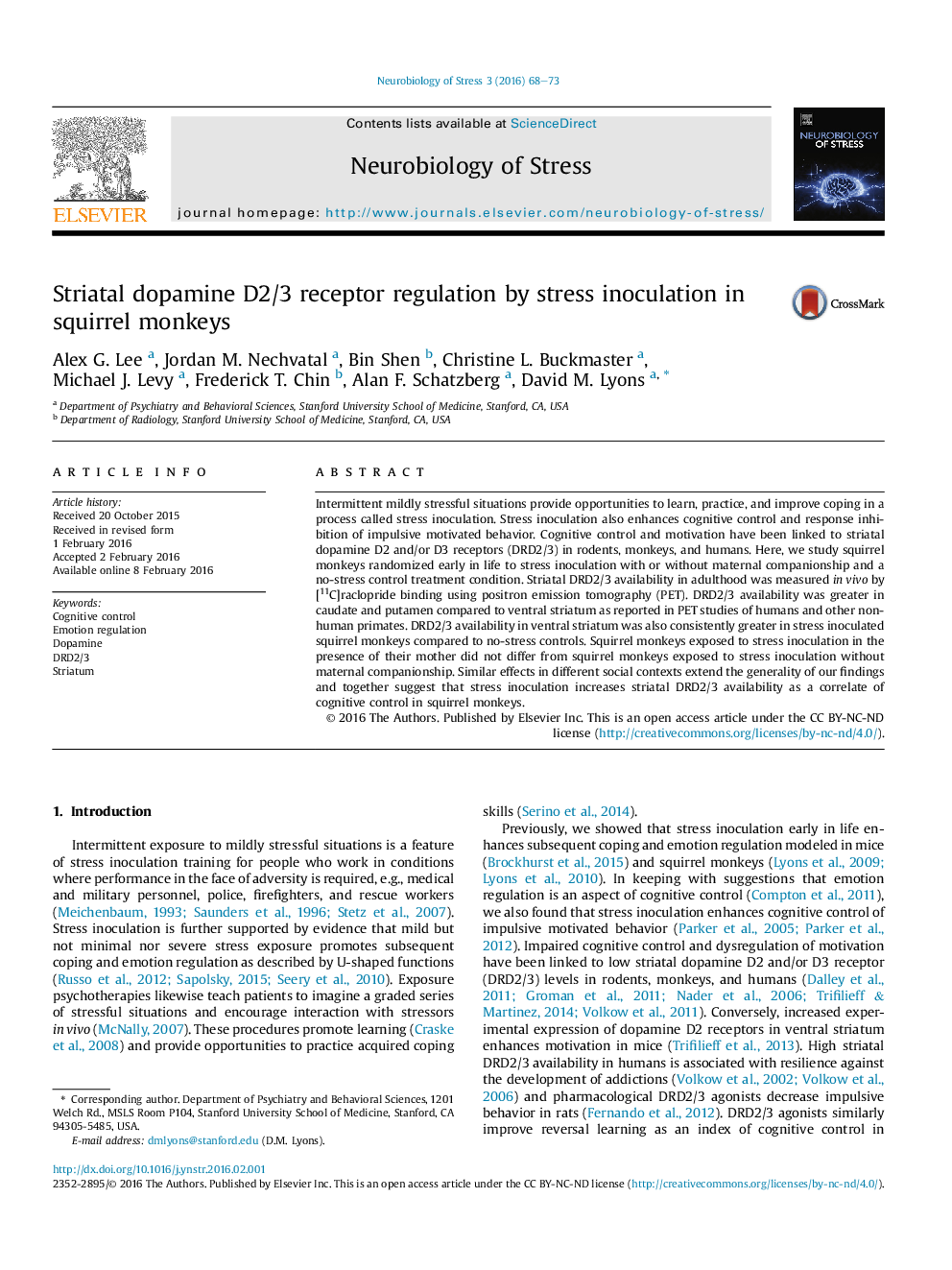| Article ID | Journal | Published Year | Pages | File Type |
|---|---|---|---|---|
| 4318522 | Neurobiology of Stress | 2016 | 6 Pages |
•Stress inoculation entails intermittent exposure to mildly stressful situations.•Stress inoculation promotes coping, emotion regulation, and cognitive control of behavior.•Cognitive control has been linked to striatal dopamine D2/3 receptors (DRD2/3).•Stress inoculation increases striatal DRD2/3 availability and enhances cognitive control in squirrel monkeys.
Intermittent mildly stressful situations provide opportunities to learn, practice, and improve coping in a process called stress inoculation. Stress inoculation also enhances cognitive control and response inhibition of impulsive motivated behavior. Cognitive control and motivation have been linked to striatal dopamine D2 and/or D3 receptors (DRD2/3) in rodents, monkeys, and humans. Here, we study squirrel monkeys randomized early in life to stress inoculation with or without maternal companionship and a no-stress control treatment condition. Striatal DRD2/3 availability in adulthood was measured in vivo by [11C]raclopride binding using positron emission tomography (PET). DRD2/3 availability was greater in caudate and putamen compared to ventral striatum as reported in PET studies of humans and other non-human primates. DRD2/3 availability in ventral striatum was also consistently greater in stress inoculated squirrel monkeys compared to no-stress controls. Squirrel monkeys exposed to stress inoculation in the presence of their mother did not differ from squirrel monkeys exposed to stress inoculation without maternal companionship. Similar effects in different social contexts extend the generality of our findings and together suggest that stress inoculation increases striatal DRD2/3 availability as a correlate of cognitive control in squirrel monkeys.
